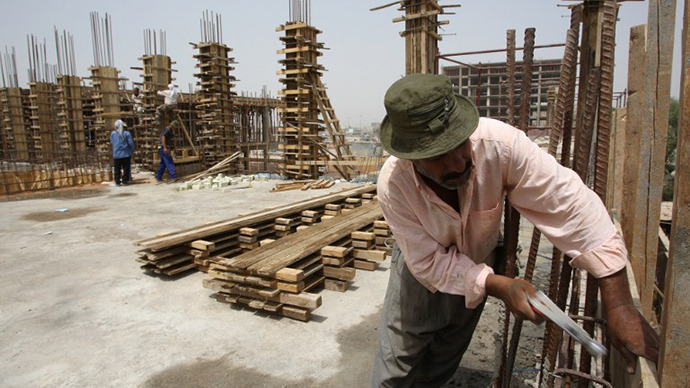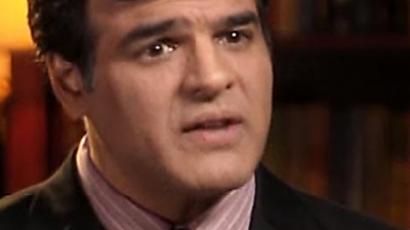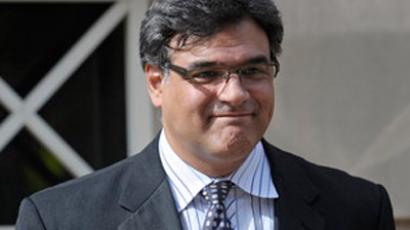US misspent billions on fruitless Iraq 'reconstruction'

In spending $60 billion to rebuild Iraq, the US has wasted more than $9 billion in taxpayer funds, only to find that Iraq is just as wrecked and unstable as before.
One decade after the US invaded Iraq, the reconstruction effort has been largely deemed a failure. In his final report to Congress, a 171-page assessment titled “Learning from Iraq”, Special Inspector General for Iraq Reconstruction Stuart Bowen concluded that the costs of the war far surpassed the results.
“You think if you throw money at a problem, you can fix it. It was just not strategic thinking,” Kurdish government official Qubad Talabani, son of Iraqi president Jalal Talabani, told auditors of the report.
“You can fly in a helicopter around Baghdad or other cities, but you cannot point a finger at a single project that was built and completed by the United States,” Iraq’s acting interior minister told Bowen, who said that dumping so much money into a warzone simply created a “triangle of political patronage” that instigated further corruption.
Bowen interviewed numerous American and Iraqi officials, many of whom criticized the US for taking on too many large projects without consulting Iraqis. When American troops withdrew, many of these projects were largely abandoned and Iraq continues to look as broken as before.
Additionally, Americans “wore out [their] welcome” by planning to “do it all and do it our way” – all while wasting taxpayer dollars, Deputy Secretary of State William J. Burns told the inspector general.
The US has spent more than $60 billion in reconstruction grants, which comes out to about $15 million for each day of the conflict. A $2.4 billion fund set up by Congress to rebuild Iraq’s water and electricity systems and to provide food, healthcare and governance was largely wasted. President George W. Bush asked for $20 billion more just a few months after the March 2003 invasion to accomplish these goals.
Abandoned projects include a 3,6000-bed prison that cost $40 million but was never finished or used and a $108 million wastewater treatment center that still remains unfinished. The US also spent millions repairing infrastructure they blew up, including a $75 million pipeline and a $29 million bridge in north-central Iraq. Contractors were also found to have overcharged the US government for supplies, with one contractor charging the Pentagon $900 for a $7 control switch.
“Waste and fraud at the levels we saw are a symptom of a failure to have a structure in place to effectively plan for stabilization and reconstruction operations, execute such operations and be held accountable for them,” Bowen said in an interview with Business Week.
The failures in Iraq have raised concern over the future of Afghanistan after the 2014 withdrawal of US troops. The US government has spent $90 billion on reconstruction projects in Afghanistan over the course of 12 years, which US officials are afraid could go to waste if oversight isn’t coordinated better.
Ten years after the American invasion of Iraq, the country remains impoverished and plagued by near-daily deadly bombings. Few people have access to electricity and clean water, and some projects that the US spent millions on have been reduced to nothing but rubble.
“If we had better controls and better planning, better oversight, better quality assurance, better quality control all in place, we would have wasted less – for sure. There is no doubt about that,” Iraqi Prime Minister Nouri al-Maliki told Bowen.














